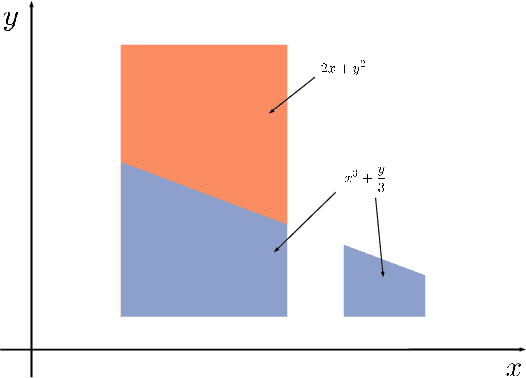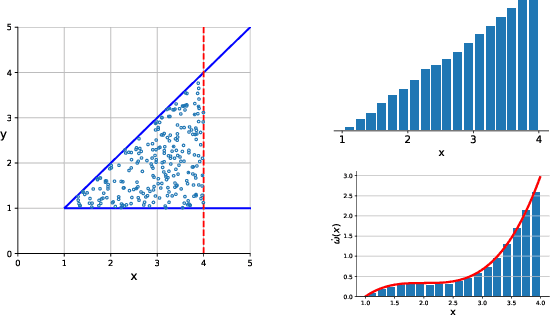Monte Carlo Anti-Differentiation for Approximate Weighted Model Integration
Paper and Code
Jan 13, 2020



Probabilistic inference in the hybrid domain, i.e. inference over discrete-continuous domains, requires tackling two well known #P-hard problems 1)~weighted model counting (WMC) over discrete variables and 2)~integration over continuous variables. For both of these problems inference techniques have been developed separately in order to manage their #P-hardness, such as knowledge compilation for WMC and Monte Carlo (MC) methods for (approximate) integration in the continuous domain. Weighted model integration (WMI), the extension of WMC to the hybrid domain, has been proposed as a formalism to study probabilistic inference over discrete and continuous variables alike. Recently developed WMI solvers have focused on exploiting structure in WMI problems, for which they rely on symbolic integration to find the primitive of an integrand, i.e. to perform anti-differentiation. To combine these advances with state-of-the-art Monte Carlo integration techniques, we introduce \textit{Monte Carlo anti-differentiation} (MCAD), which computes MC approximations of anti-derivatives. In our empirical evaluation we substitute the exact symbolic integration backend in an existing WMI solver with an MCAD backend. Our experiments show that that equipping existing WMI solvers with MCAD yields a fast yet reliable approximate inference scheme.
 Add to Chrome
Add to Chrome Add to Firefox
Add to Firefox Add to Edge
Add to Edge